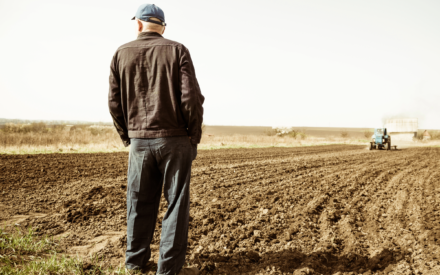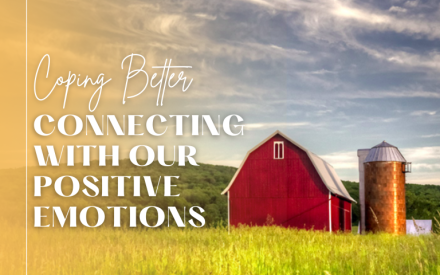Stress is everywhere, and there are many facets of our daily life where we encounter challenging times. For parents, it can be increasingly difficult to help our children navigate through these challenging and changing times when our own buckets feel dry many days. Yet suppose the ongoing resilience of farm families across Wisconsin proves one thing. In that case, it’s that many are finding ways of doing just that – helping their children navigate the landscape of uncertainties and potential stressors every day.
We all cope with stress in different ways; pushing harder, and ignoring our physical, emotional, spiritual, and intellectual needs to thrive. Or maybe the opposite: shutting down altogether and becoming overwhelmed with cycles of anxiety, depression, and fatigue. There are multiple ways that these stress responses show up in our bodies and minds. No matter what these stressors are, or where we land on the scale of coping, it’s important to remember that our response is being observed by our loved ones, by our children.
One day they will learn to practice and use these same responses to stressors themselves as their first tools for coping. We can be key in building resiliency by teaching them to use healthy coping methods and responses for the challenges and changes they will face.
A few key things we can try to remember when we are coaching children through challenging moments
- Be open to discussion. Listen – actively – that means acknowledging their feelings and validating their concerns.
- Be calm and reassuring. When difficult times happen, talk about how you and your family will work together to recover.
- Turn off digital devices and disconnect together.
- Respond to your children’s questions. Consider your child/ teen’s level of understanding and development and give a response that helps them understand without creating additional stress.
- Use your family, friends, and community when needed to provide additional support.
As children transition from a summer of certainty at the family farm, to a new school year, new teachers, new classmates, and maybe even a new building, August can be a good time to gently explore your child’s worries or concerns. Maintaining (or building) some healthy routines prior to the start of the school year helps children feel safe and confident as the school year starts. Routines give them much-needed boundaries and consistency that tell them, although some things may be changing in their world, the structure of their day is solid, safe, and reliable. These family routines also help children understand their place in their family and feel valued and nourished – an essential part of their long-term mental health.
Resources
- Children’s Mental Health from the Centers for Disease Control and Prevention
- Raising Caring Kids from UW Extension
- The Teen Brain
- Stand Up to Stress Coloring Book



 Five tools to address stress
Five tools to address stress Benefits of Sleep for Mental and Physical Wellbeing
Benefits of Sleep for Mental and Physical Wellbeing February is Heart Health Month — Achieve a Happy Heart!
February is Heart Health Month — Achieve a Happy Heart! Coping Better Episode 7 | F.A.R.M.(ing) a Healthy Future
Coping Better Episode 7 | F.A.R.M.(ing) a Healthy Future